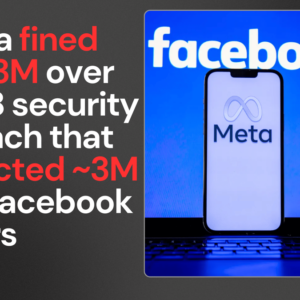Creating a website can feel like a daunting task, especially if you’re just starting out. But don’t worry! With so many options available, you can find the perfect platform that suits your needs. In this blog post, we will explore ten fantastic alternatives to WordPress that can help you build a stunning website without any hassle. So, let’s dive in!
Why Look for Alternatives to WordPress?
WordPress is a popular choice for many website creators, but it may not be the best fit for everyone. Here are a few reasons why you might want to consider other platforms:
- Complexity: Some users find WordPress overwhelming with its many features.
- Maintenance: Keeping WordPress updated can be time-consuming.
- Customization: You might want more straightforward customization options.
Now that we understand why some may seek alternatives, let’s explore our top picks!
1. Wix
Wix is a user-friendly website builder that allows you to create beautiful websites quickly. It offers:
- Drag-and-drop interface: Easily customize your site without coding.
- Templates: Choose from hundreds of stunning templates.
- App Market: Add extra features with various apps.
Wix is perfect for beginners who want to get started fast!

2. Squarespace
Squarespace is known for its sleek designs and professional templates. It’s great for creatives who want their websites to look polished. Key features include:
- Built-in SEO tools: Help your site rank higher in search results.
- E-commerce capabilities: Easily set up an online store.
- 24/7 support: Get help whenever you need it.
With Squarespace, your site will stand out from the crowd!

3. Weebly
Weebly is another easy-to-use platform that’s perfect for small businesses and personal sites. Benefits include:
- Simple drag-and-drop builder: No technical skills required.
- Integrated e-commerce features: Start selling products online easily.
- Mobile optimization: Your site will look great on all devices.
Weebly is ideal for those who want simplicity without sacrificing quality.

4. Shopify
If you’re looking to create an online store, Shopify is one of the best options available. Here’s what makes it special:
- E-commerce focus: Built specifically for online selling.
- Payment processing: Accept payments easily through various methods.
- Extensive app store: Enhance your store with additional features.
Shopify is a powerhouse for anyone serious about e-commerce!

5. Joomla
Joomla is a flexible content management system (CMS) that offers more complexity than some other options. It’s suitable for:
- Developers and advanced users: Those who want more control over their site.
- Community websites: Great for building social networks or forums.
Joomla might be the right choice if you have some technical know-how!

6. Ghost
Ghost is a modern publishing platform focused on blogging and content creation. Its highlights include:
- Clean interface: Distraction-free writing environment.
- Built-in SEO features: Helps your content get discovered easily.
- Subscription model options: Monetize your blog with memberships.
Ghost is perfect for bloggers who want a minimalist approach!

7. Webflow
Webflow combines design flexibility with powerful CMS capabilities. It’s great for:
- Designers and developers: Those who want complete creative control.
- Responsive design: Create sites that look great on any device.
Webflow allows you to build visually stunning websites without coding!

8. Drupal
Drupal is another powerful CMS that offers extensive customization options. It’s suitable for:
- Complex websites and applications: Ideal for large organizations or government sites.
- Advanced users and developers: Requires some technical skills to manage effectively.
If you need a highly customizable solution, Drupal might be the answer!
9. Carrd
Carrd is a simple one-page website builder perfect for personal projects or portfolios. Key points include:
- Ease of use: Build beautiful one-page sites quickly.
- Affordable pricing plans: Great value for individuals and freelancers.
Carrd is perfect if you need a quick and straightforward solution!
10. Blogger
If you’re a beginner looking to start a blog quickly without worrying about hosting, coding, or technical complexities, Blogger is an excellent choice. It’s great for hobby blogging or casual writing but less suitable for professional ventures.
- Ease of Use: Perfect for beginners—just sign in with your Google account and start blogging.
- Completely Free: Free hosting, free templates, and a subdomain (yourblog.blogspot.com).
- Google Integration: Built-in Adsense, Analytics, and Search Console support for easy monetization and tracking.
Conclusion
Choosing the right platform to build your website depends on your specific needs and goals. Whether you’re looking for simplicity, e-commerce capabilities, or advanced customization, there’s an alternative to WordPress that fits the bill!
So, which platform will you choose? Explore these options and start creating your dream website today!












